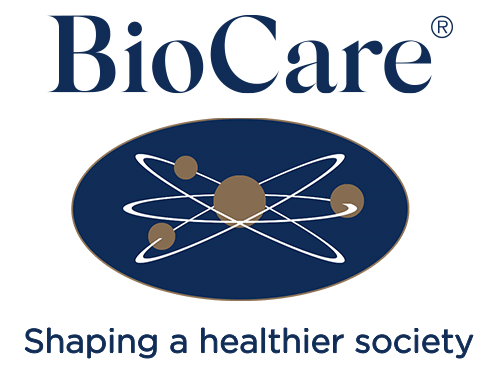
STAYING SHARP WITH NUTRITION
Share
STAYING SHARP WITH NUTRITION
Modern life is very demanding of our brain function. We’re constantly required to multitask, remember, concentrate, and articulate. We are submitted to a barrage of stimulation from lots of sources, especially now TVs, computers, tablets and smartphones. So it’s even more important that we keep our brains in top condition.
The brain is the operating system of the human body, and is responsible for receiving complex inputs from the environment, organising thoughts, memory and planning, understanding and using language,and controlling our motor actions (our ‘cognitive’ functions).
Normal brain function is dependent on multiple interlinking factors, many of which may be influenced by nutritional factors. Neurotransmitters such acetylcholine, glutamate and dopamine are required for memory, stimulation and motivation respectively, and require raw materials including choline, amino acids and B vitamins for synthesis. Healthy nerve cell structure is critical and relies on essential fats and phospholipids for membrane function. Good circulation to delicate neural and vascular tissues, along with good antioxidant status, are essential to reduce oxidative damage.[i]
Lifestyle factors are often overlooked, but play a key role in cognitive function. Stress has been identified as a factor in cognitive decline,[ii] while anxiety levels have been linked to the progression of mild cognitive impairment to Alzheimer’s disease.[iii] Maintaining a social life and staying physically active is associated with continued cognitive health,[iv] whereas social isolation and loneliness have been identified as risk factors for decline in cognitive function.[v][vi]
NUTRIENTS FOR STAYING SHARP:
Ginkgo Biloba supports circulation to the brain and cognitive function. It has been shown to enhance memory in the elderly [vii] and in Alzheimer’s,[viii] [ix] [x] as effectively as prescription drugs.[xi]
Blackcurrant - Berry fruits can prevent age-related neurodegenerative diseases and improve motor and cognitive functions.[xii] Blackcurrant increases cognitive performance (attention, response time, memory, cognitive flexibility, mood and mental fatigue).[xiii] These effects may be due to the antioxidant ‘anthocyanin’ content supporting circulation and vascular integrity. However, reductions in MAO enzyme, which breaks down monoamine neurotransmitters may also positively impact cognition and mood.[xiv] Blackcurrant anthocyanadins have been shown to reduce the formation of beta amyloid plaques in Alzheimer’s disease. [xv]
Herbs like Rosemary have a significant benefit on cognitive function, showing a reduction in cognitive decline.[xvi] Sage improves performance, memory, reduced mental fatigue and increases alertness[xvii] and recall[xviii].
- Choline - When used in combination with ginkgo had a moderate effect on improving cognition and immune function after 3 months, and significant improvement after 6 months[xix].
- Phosphatidyl Serine is a major phospholipid in nerve cell membranes[xx] and can improve cognitive decline,[xxi] Increased memory recognition, memory recall, executive functions, mental flexibility[xxii] and verbal recall.[xxiii] Administration of phosphatidyl serine improves memory in Alzheimer’s Disease.[xxiv]
Levels of zinc have been found to be lower in patients with Alzheimer's disease[xxv]. Low levels of B vitamins have also been associated with incidence of cognitive impairment[xxvi], particularly folate[xxvii] and vitamin B12[xxviii]. These help to support a process called methylation which is essential for making neurotransmitters. Vitamin B5 may be helpful as a precursor for the memory neurotransmitter acetylcholine[xxix]. Choline is also central to acetylcholine production and essential phospholipids that help nerve cells function more effectively.
